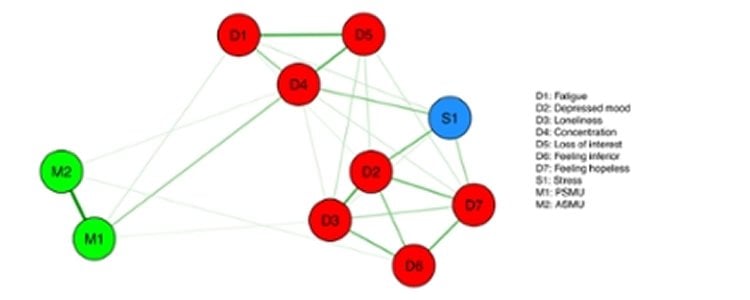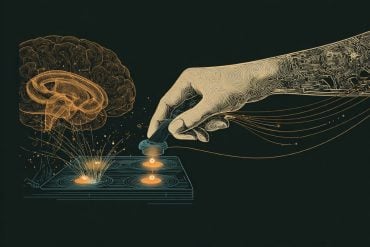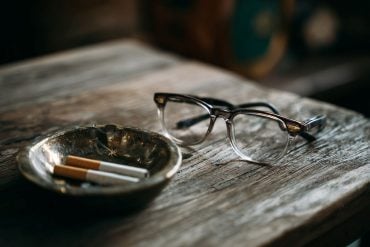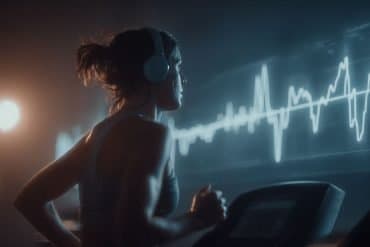Summary: A new study reveals a correlation between the passive use of social media and depression symptoms such as loneliness and fatigue.
Source: University of Amsterdam.
Over the past decade, social media platforms like Facebook and Twitter have become a central part of everyday life. Despite their massive popularity, however, controversy abounds regarding their impact on mental health and wellbeing. A new research study by the University of Amsterdam (UvA) has now found a correlation between the passive use of social media and depression symptoms like loneliness and fatigue. The findings were recently published in the Journal of Experimental Psychology: General.
For many of us it is a daily habit. Whenever we have a moment to spare, we find ourselves reaching for our smartphones and aimlessly scrolling through social media feeds reading updates or looking at pictures. This behaviour, called passive social media use (PSMU), is often used to relieve boredom and can swallow up large chunks of personal time. While seemingly innocent, PSMU isn’t without controversy – experimental research shows that it can decrease affective wellbeing, a sense of belonging and life satisfaction.
Tracking wellbeing with an app
To investigate the link between social media use and depression symptoms, an international research team led by the UvA recruited 125 students and measured their wellbeing and passive social media use seven times daily for 14 days. A special app on their phones prompted participants at fixed times to complete a 12-item depression questionnaire. Their responses were analysed with a novel statistical technique, which was developed/implemented by researchers affiliated with the UvA’s Psychosystems Group (Dr Laura Bringmann and Dr Sacha Epskamp). The analysis focused on three timeframes – short-term (within the same two hours), medium-term (prediction from one prompt to next) and longer-term (across the entire 14 days).
Negative feelings and social media
Although the results showed that engaging in PSMU did not predict depression symptoms, they did reveal a noticeable relation between negative wellbeing and increased social media use. ‘Feelings of fatigue and loneliness at a given prompt predicted PSMU at the next prompt, indicating that certain depression symptoms might lead individuals to scroll through social media feeds’, says George Aalbers, a UvA Research Master’s graduate in Psychology and lead author of the study. ‘We also found that passive social media use at a given prompt co-occurred with a loss of interest, concentration problems, fatigue and loneliness at the same prompt. However, we don’t know whether PSMU causes these symptoms or vice versa. This is a topic for future research.’

Most importantly, Aalbers adds, the study shows that the link between social media and psychological well-being is more complicated than ‘social media make people depressed’. ‘Instead, specific social media behaviour seems associated with specific depression symptoms, and more research is required to find out how these social media use and mental health influence each other.’
The researchers believe the next important step is to replicate the findings in a clinical setting. ‘Our study used a student sample, in which average levels of depression symptoms, loneliness and stress were fairly low. As previous research suggests that social media’s adverse effects could be stronger in depressed than in non-depressed individuals, a clinical sample might show a more pronounced link between PSMU and depression symptoms.’
Source: University of Amsterdam
Publisher: Organized by NeuroscienceNews.com.
Image Source: NeuroscienceNews.com image is credited to the researchers.
Original Research: Open access research for “Social Media and Depression Symptoms: A Network Perspective” by G. Aalbers, R.J. McNally, A. Heeren, S. de Wit & E.I. Fried in Journal of Experimental Psychology: General. Published December 5 2018.
doi:10.1037/xge0000528
[cbtabs][cbtab title=”MLA”]University of Amsterdam”The Complicated Relationship Between Social Media and Depression.” NeuroscienceNews. NeuroscienceNews, 5 December 2018.
<https://neurosciencenews.com/social-media-depression-10305/>.[/cbtab][cbtab title=”APA”]University of Amsterdam(2018, December 5). The Complicated Relationship Between Social Media and Depression. NeuroscienceNews. Retrieved December 5, 2018 from https://neurosciencenews.com/social-media-depression-10305/[/cbtab][cbtab title=”Chicago”]University of Amsterdam”The Complicated Relationship Between Social Media and Depression.” https://neurosciencenews.com/social-media-depression-10305/ (accessed December 5, 2018).[/cbtab][/cbtabs]
Abstract
Social Media and Depression Symptoms: A Network Perspective
Passive social media use (PSMU)—for example, scrolling through social media news feeds—has been associated with depression symptoms. It is unclear, however, if PSMU causes depression symptoms or vice versa. In this study, 125 students reported PSMU, depression symptoms, and stress 7 times daily for 14 days. We used multilevel vector autoregressive time-series models to estimate (a) contemporaneous, (b) temporal, and (c) between-subjects associations among these variables. (a) More time spent on PSMU was associated with higher levels of interest loss, concentration problems, fatigue, and loneliness. (b) Fatigue and loneliness predicted PSMU across time, but PSMU predicted neither depression symptoms nor stress. (c) Mean PSMU levels were positively correlated with several depression symptoms (e.g., depressed mood and feeling inferior), but these associations disappeared when controlling for all other variables. Altogether, we identified complex relations between PSMU and specific depression symptoms that warrant further research into potentially causal relationships.







